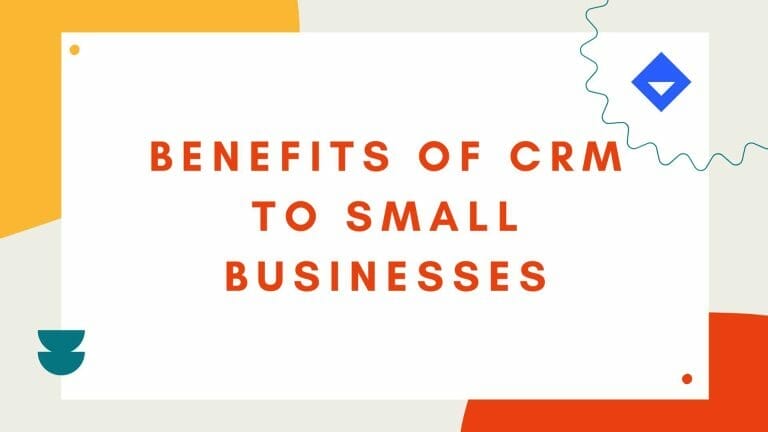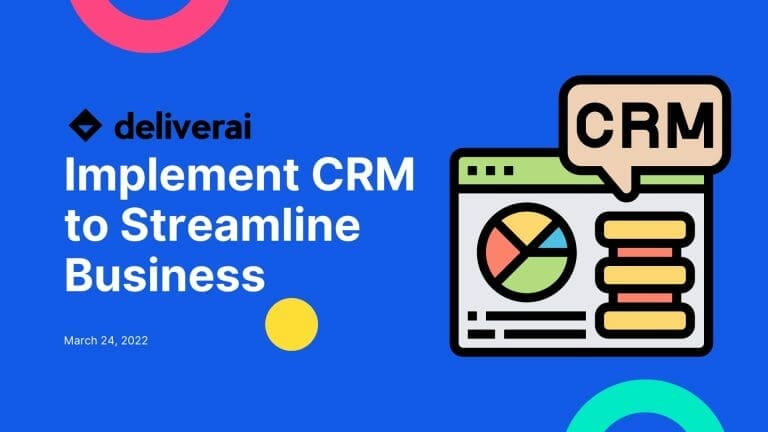Are you struggling to keep up with a growing list of customers, their needs, preferences, and buying histories, all while running a small business with limited resources?
Is your desk cluttered with a myriad of spreadsheets, notes, and contact lists that seem to get longer and more unmanageable with each passing day?
If this rings a bell, then you, my friend, are in need of a Customer Relationship Management (CRM) system. But there are so many, and now you are thinking about how to choose a CRM for small business. No worries, we have prepared a perfect CRM choosing guide for small businesses.
Finding the right CRM for your small business can seem like a daunting task given the plethora of choices available. But the truth is, your perfect CRM is out there, waiting to streamline your operations, boost sales, and cultivate stronger relationships with your customers. And we are here to guide you through the process of finding that perfect fit.
This article will tackle how to identify your business’s unique CRM needs, how to balance these needs with your budgetary constraints, and how to choose a CRM that your team can easily adopt and use effectively. We’ll help you turn your chaotic customer management system into a smooth, efficient process, leveraging technology that fits your specific business model and goals. Let’s equip your small business with the CRM it deserves to scale new heights of success.
Identify Your Needs Before You Start
When choosing a CRM for your small business, it is crucial to first identify your specific needs and requirements. This involves understanding your sales processes, customer interactions, and business goals.
Consider the size of your sales team, the complexity of your sales cycle, and the level of automation you require. Reflect on the challenges your business faces, such as contact management, sales pipeline management, or customer service.
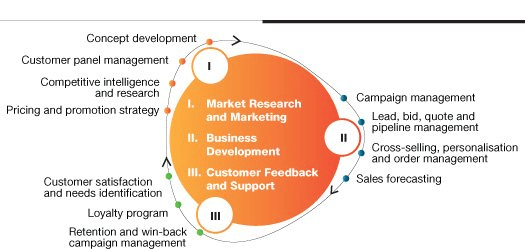
By clearly identifying your needs, you can narrow down your options and choose a CRM that aligns with your unique business requirements.
Whether you prioritize sales automation, marketing efforts, or customer support, assessing your needs is the first step in finding the right CRM solution.
Understanding Your Business Goals and Objectives
To effectively choose a CRM system for your small business, it’s crucial to have a clear understanding of your business goals and objectives. This will help you identify the specific features and functionalities that you need in a CRM system to achieve those goals.
Start by reviewing yearly business performance reports and conducting a business audit. This will give you valuable insights into your current processes and highlight any gaps or areas for improvement. It’s also important to identify key goals and objectives, both short-term and long-term, and set timeline markers to track progress.
Consider how a CRM system can support your business goals. For example, if your goal is to expand product lines, look for a CRM system that offers powerful sales and marketing tools to help you target new customers and manage leads effectively.
If your aim is to increase revenue, choose a CRM system that provides robust sales automation features and allows you to track sales activity and manage the sales pipeline efficiently. If customer service is a priority, opt for a CRM system with customer support features and tools to enhance customer interactions and improve satisfaction.
By understanding your business goals and aligning them with the capabilities of a CRM system, you can make an informed decision and choose the right CRM software that will help drive your small business toward success.
Analyzing Your Current Customer Relationships
Analyzing your current customer relationships is a crucial step in choosing the right CRM system for your small business. To effectively do this, start by reviewing the various channels through which customers interact with your business. This includes phone calls, emails, social media platforms, and in-person interactions.
By analyzing these channels, you can gain valuable insight into your customers’ needs and preferences. Look for patterns in the types of inquiries or issues that customers frequently bring up. Identify common pain points or areas where customers express satisfaction. This analysis will help you understand the specific requirements and features you need in a CRM system to effectively handle customer interactions from different sources.
For example, if you find that a significant number of customer inquiries come through social media platforms, you may need a CRM system that can effectively manage and track social media interactions. On the other hand, if in-person interactions are vital for your business, you might require a CRM system that integrates with a point-of-sale system or tracks customer data during face-to-face interactions.
Examining Your Current Processes and Workflows
To effectively choose a CRM for your small business, it is essential to examine your current processes and workflows. By assessing your existing operations, you can identify areas that can benefit from automation and streamlining, ultimately improving efficiency and productivity.
Start by listing the different processes and workflows in your business, such as lead management, data collection, email communication, and customer relationship nurturing. Consider the tasks involved in each process and the time and effort required to complete them manually.
Implementing CRM software can significantly aid in automating these processes. CRM systems provide tools and features that streamline tasks and eliminate the need for manual intervention. For instance, you can automate lead capturing, data entry, and email communication, thereby saving time and reducing human error.
Moreover, CRM software centralizes all customer information, making it easily accessible for different teams within your business. This helps in maintaining consistent and up-to-date customer records. With a CRM system, you can track customer interactions, document sales activities, and monitor the progress of your sales pipeline.
By examining your current processes and workflows and determining the areas that could benefit from automation and streamlining, you can choose a CRM software that aligns with your specific business needs. Remember to consider the features and functionalities offered by different CRM systems, ensuring they cater to your business goals and can effectively improve your processes.
Researching CRM Software Options
When researching CRM software options for your small business, it’s important to consider the features and capabilities that each platform offers. One of the essential features to look for is a reporting dashboard, which provides valuable insights into your sales team’s performance and allows you to track important metrics. Additionally, calendar syncing is a useful functionality that allows you to schedule and manage appointments seamlessly.
Deal tracking is another crucial capability to consider. It enables you to monitor the progress of your sales opportunities, ensuring that no potential customer slips through the cracks. Real-time insights are also valuable, as they provide up-to-date information on customer interactions and sales activities.
One key functionality to prioritize is sales pipeline management. This feature allows you to visualize and track your sales pipeline, providing a clear overview of where each lead or deal stands. By understanding where your leads are in the sales process, you can make informed decisions to move them forward.
Overall, by researching CRM software options that offer these essential features and capabilities, you can find a platform that aligns with your specific business needs and helps you effectively manage your customer relationships.
Evaluating Third-Party Integrations and Support
When choosing a CRM for your small business, it is essential to consider the availability and extent of third-party integrations as well as the level of support provided by the CRM vendor. Third-party integrations allow you to connect your CRM software with other tools and systems that you use in your business, enhancing its functionality and efficiency.
Having extensive integration opportunities is important because it allows you to seamlessly integrate your CRM with other essential software and services. This enables you to streamline your business processes and consolidate your data in one place. Look for a CRM vendor that is continuously expanding its integrations, as this indicates their commitment to providing you with a wide range of integration options both now and in the future.
Some examples of third-party software that can be integrated with a CRM system include email marketing tools, accounting software, project management platforms, e-commerce platforms, and customer service systems. These integrations enable you to synchronize data, automate tasks, and improve the overall customer experience.
Support during implementation is another crucial aspect to consider. Implementing a CRM system can be complex, especially for small businesses with limited resources. It is essential to choose a CRM vendor that offers comprehensive support during the implementation process. This includes providing technical assistance, training, and guidance to ensure a successful and smooth transition.
Factors to consider when choosing a CRM for small business
With the rapid expansion of the CRM software market, choosing the right CRM for your small business can seem like a daunting task. To help you make an informed decision, here are 10 factors to consider.
Availability of customer support
When evaluating a CRM for your small business, one of the key factors to consider is the availability of customer support. Quick and reliable customer support is particularly important for small businesses that may not have their own dedicated IT department. Here’s why:
A CRM with a reputable customer support team can quickly assist with product usage, answer questions, and resolve technical issues. This ensures that any problems or challenges you encounter while using the CRM are addressed promptly, minimizing any disruptions to your business operations. Small businesses often lack the resources and expertise to fully leverage complex software like a CRM. Having access to knowledgeable customer support representatives can provide valuable guidance on how to best utilize the CRM’s features and tailor them to your specific business needs.
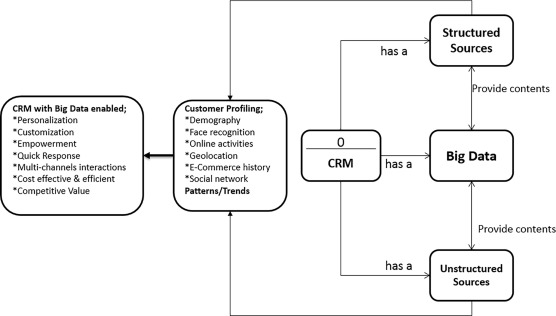
Technical glitches or software malfunctions can significantly impact your business. With reliable customer support available, you can count on swift assistance in troubleshooting and resolving any issues that arise. This helps minimize downtime and keeps your business running smoothly. A CRM with comprehensive customer support ensures that you have access to ongoing training and education materials. This allows you and your team to continually improve your knowledge and proficiency in using the CRM, maximizing its benefits for your business.
Knowing that you have access to dependable customer support creates peace of mind. It gives you the assurance that any challenges you face will be addressed promptly, allowing you to focus on other critical aspects of your business. The availability of customer support is a crucial factor to evaluate when choosing a CRM for your small business. Quick and reliable support can help you effectively use the CRM, resolve issues promptly, and ensure seamless business operations.
Dashboards
A CRM dashboard is like a control center for your small business, providing a snapshot of your sales processes and customer relationships. The ability to customize dashboards is crucial for small businesses as it allows you to view metrics and important data on easy-to-view charts and graphs, tailored specifically to your business needs.
With customizable dashboards, you can track and monitor key performance indicators (KPIs) that are most relevant to your business goals. These KPIs could include sales revenue, customer acquisition rates, lead conversion rates, or customer satisfaction scores. By visualizing these metrics in a clear and concise format, you gain immediate insights into the health of your business and can make informed decisions to drive growth and success.
The visual nature of charts and graphs simplifies complex data, making it easier to identify patterns, trends, and correlations. This empowers small business owners to analyze their sales processes, monitor progress toward targets, and identify areas that require improvement. With a quick glance at the dashboard, you can see how your sales team is performing, which marketing campaigns are generating the most leads, or how customer satisfaction levels are trending.
Immediate access to insightful information is crucial for small businesses, allowing them to respond swiftly to changing customer needs and market dynamics. By leveraging customizable dashboards in your CRM, you gain the agility to make real-time decisions and adjustments to your business strategies, ultimately driving growth and success.
Customizable dashboards within a CRM are a powerful tool that helps small business owners harness the vast amount of data available to them. By presenting metrics in visually appealing charts and graphs, dashboards provide immediate access to actionable insights. This empowers business owners to make informed decisions, optimize business processes, and drive growth in a data-driven business landscape.
Contact views
Contact views are a vital component of a CRM system for small businesses. They provide a comprehensive, 360-degree view of each contact’s interactions with the company, allowing for a deeper understanding of their needs and preferences.
By having access to contact views, different departments within the business, such as sales and support, can better serve customers and make more informed decisions. Sales teams can track and monitor a contact’s engagement throughout the sales process, from initial lead generation to closed deals. This visibility enables them to tailor their approach based on the contact’s previous interactions and preferences, ultimately improving their chances of success.
Additionally, support teams can use contact views to gain insights into a customer’s history with the company. This information helps them provide more personalized and effective customer service, as they have a clear understanding of any previous issues or interactions. By addressing customer needs and resolving problems promptly, businesses can enhance customer satisfaction and loyalty.
Maintaining accurate contact data is crucial in building and maintaining customer relationships, and contact management plays a significant role in this process. By regularly updating and organizing contact information, businesses can ensure that they have the most up-to-date and relevant details about their customers. This information enables effective communication and personalized experiences, fostering strong and long-lasting relationships.
In conclusion, contact views provide small businesses with a 360-degree view of customer interactions, empowering different departments to better serve customers and make informed decisions. Accurate contact data and effective contact management are essential elements in building and maintaining customer relationships. By leveraging contact views and focusing on strong contact management practices, small businesses can enhance customer satisfaction, drive loyalty, and ultimately achieve business success.
Social CRM capabilities
When choosing a CRM for your small business, it’s essential to consider the social CRM capabilities it offers. Social CRM refers to the integration of social media platforms into the CRM system, allowing businesses to monitor brand mentions and interact with customers effectively.
With social CRM capabilities, you can easily monitor and track what people are saying about your brand on various social media channels. This real-time monitoring helps you stay on top of any positive or negative mentions and enables you to respond promptly. By actively engaging with customers on social media, you can address their concerns, provide support, and showcase your excellent customer service. Here’s an image by Smart Insights on use cases for social CRM.
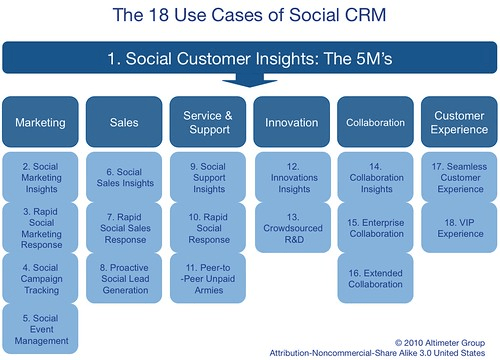
The growing importance of social CRM cannot be understated. Social media platforms have become a vital channel for lead generation and customer interactions. By leveraging social CRM, you can identify potential customers and engage with them directly on social media. This personalized approach not only enhances the customer experience but also increases the likelihood of converting leads into sales.
Furthermore, social CRM allows you to capture valuable customer insights from social media interactions. By analyzing customer conversations and behavior on social platforms, you can gain a deeper understanding of their preferences, interests, and needs. This information can then be used to tailor marketing campaigns, refine your sales processes, and strengthen customer relationships.
The social CRM capabilities of a CRM system play a crucial role in monitoring brand mentions, interacting with customers, and leveraging social media for lead generation and customer interactions. By choosing a CRM that offers robust social CRM features, your small business can effectively harness the power of social media to drive growth and success.
Marketing Features
When choosing a CRM for your small business, it’s essential to consider the marketing features it offers. These features can greatly benefit your marketing efforts and help streamline your strategies. Some key marketing features to look for include email marketing, building landing pages, lead scoring, running multichannel marketing campaigns, and tracking results.
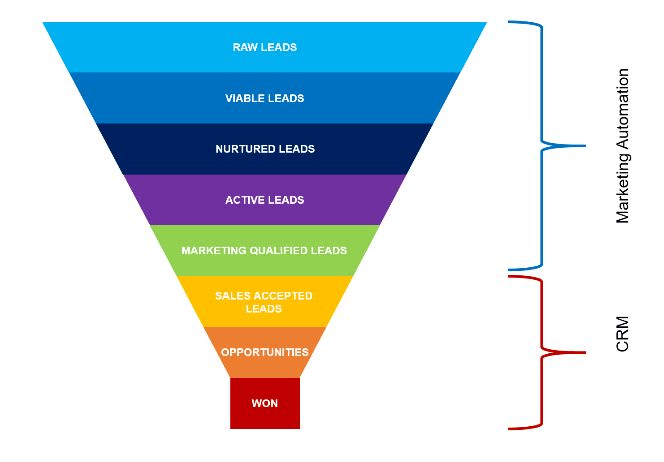
Email marketing is a powerful tool for reaching your target audience. Look for a CRM that allows you to create and send personalized email campaigns easily. This feature helps you nurture leads, retain customers, and drive engagement.
The ability to build landing pages within your CRM is another valuable marketing feature. With this feature, you can create visually appealing and optimized landing pages to capture leads and drive conversions. It eliminates the need for additional tools and enhances your lead-generation efforts.
Running multichannel marketing campaigns is key to reaching your audience wherever they may be. Look for a CRM that integrates with various marketing channels, such as social media, SMS, and direct mail. This feature ensures consistent messaging and maximizes your marketing reach. Tracking results is essential for measuring the success of your marketing efforts. A CRM with robust analytics and reporting features allows you to monitor the performance of your campaigns, track key metrics, and make data-driven decisions to optimize your marketing strategies.
When choosing a CRM for your small business, consider the marketing features it offers, such as email marketing, landing page building, lead scoring, multichannel marketing campaigns, and result tracking. These features will empower your marketing efforts, drive customer engagement, and help you achieve your business goals.
Helpdesk Features
CRM software with integrated helpdesk features can greatly benefit small businesses by streamlining customer support and improving team alignment. These features eliminate the need for additional helpdesk software, saving both time and resources.
With helpdesk features, businesses can easily manage and track customer support interactions within the CRM system. This centralized approach allows support tickets to be efficiently assigned, tracked, and resolved all in one place. Team members can collaborate and share information, ensuring a seamless and unified customer support experience.
One of the key benefits of using an all-in-one CRM with helpdesk features is the ability to track open support tickets. This provides a clear view of customer issues, enabling prompt response and resolution. It also helps businesses prioritize and allocate resources effectively, ensuring customer satisfaction and retention.
By integrating customer support functions into the CRM, businesses can achieve better team alignment. Support agents can access customer information and history directly from the CRM, providing personalized and efficient assistance. This not only improves response times but also enhances the overall customer experience.
In summary, utilizing the helpdesk features of CRM software brings numerous benefits to small businesses. It reduces the need for additional helpdesk software, tracks support tickets and improves team alignment for a streamlined and effective customer support process.
Integrations and an open API
Integrations and an open API play a crucial role in choosing a CRM for small businesses. An open API (Application Programming Interface) allows users to connect and sync data from third-party applications seamlessly, eliminating the need to constantly switch between different screens and platforms.
By leveraging an open API, small businesses can integrate their CRM with various tools and software they already use, such as email marketing platforms, accounting software, project management tools, and e-commerce platforms. This integration enables businesses to access and utilize a wide range of data from diverse sources within their CRM system.
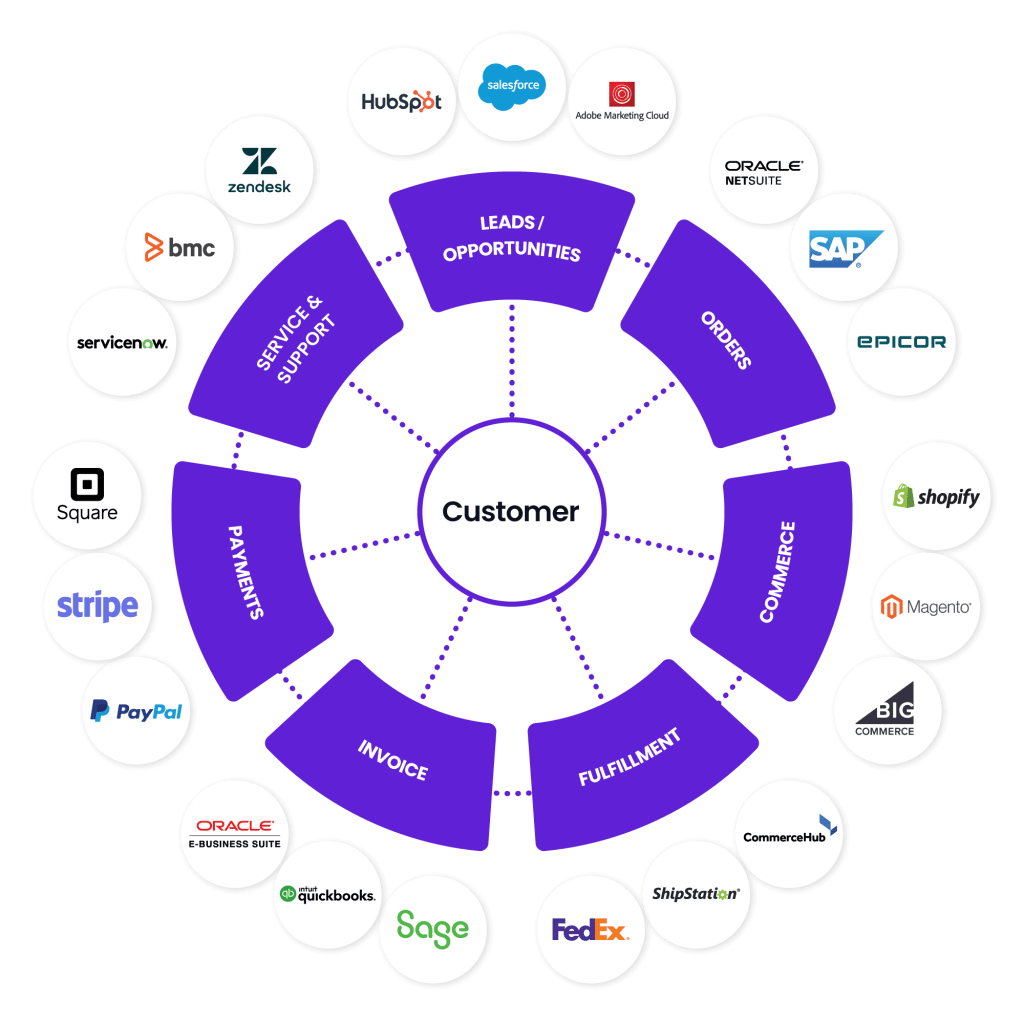
The benefits of integrating other business software and tools with a CRM are numerous. Firstly, it provides users with a holistic view of their customer data, consolidating information from multiple applications into a single platform. This not only saves time but also helps in making informed decisions and strategies.
Furthermore, integrating third-party applications with a CRM streamlines business processes by automating data syncing and eliminating manual data entry. This ensures data consistency and accuracy across different systems and reduces the chances of errors or duplications.
Choosing a CRM that offers integrations and an open API empowers small businesses to connect and sync data from various applications seamlessly. This integration provides access to more data, streamlines processes, and enables businesses to make data-driven decisions for enhanced productivity and growth.
Mobile Access
Mobile access is an essential feature that small businesses should look for when choosing a CRM. In today’s fast-paced business environment, teams need the flexibility to manage crucial business data from any device and any location. Mobile access enables sales teams to stay connected and productive while on the go, ensuring that important customer information is always at their fingertips.
With mobile access to a CRM, teams can access their sales pipeline, customer interactions, and other vital information from their smartphones or tablets. This allows them to quickly respond to customer inquiries, update records in real-time, and stay on top of their sales activities, even when they are away from their desks.
Additionally, mobile access enables teams to work efficiently while remote or traveling. Whether on a business trip or working from home, having access to a CRM on a mobile device ensures that team members can stay productive and collaborate effectively with their colleagues.
It’s important to note that not all CRMs provide the same level of mobile access. Before selecting a CRM for your small business, make sure to consider the mobile capabilities it offers. Look for features like a mobile app, responsive design, and offline access to ensure that your team can work efficiently from any device, regardless of their location.
Mobile access in a CRM is crucial for small businesses as it enables teams to manage crucial business data from any device and any location. It enhances team productivity, enables efficient remote work, and ensures that important customer information is always accessible. Before choosing a CRM, make sure to assess the level of mobile access it provides to meet your team’s needs.
Metrics and reporting
Metrics and reporting play a crucial role in a CRM for small businesses. By accurately measuring and analyzing data, businesses can gain valuable insights into their sales processes and customer relationships, enabling them to make informed, data-driven decisions that can drive the direction of the company.
One of the key areas where metrics and reporting are essential is in understanding the sales funnel. A CRM should provide insights into the status of leads at each stage of the funnel, allowing business owners to identify any bottlenecks or roadblocks in the sales cycle and take appropriate action to address them. This visibility into the sales funnel helps businesses optimize their sales processes and improve efficiency.
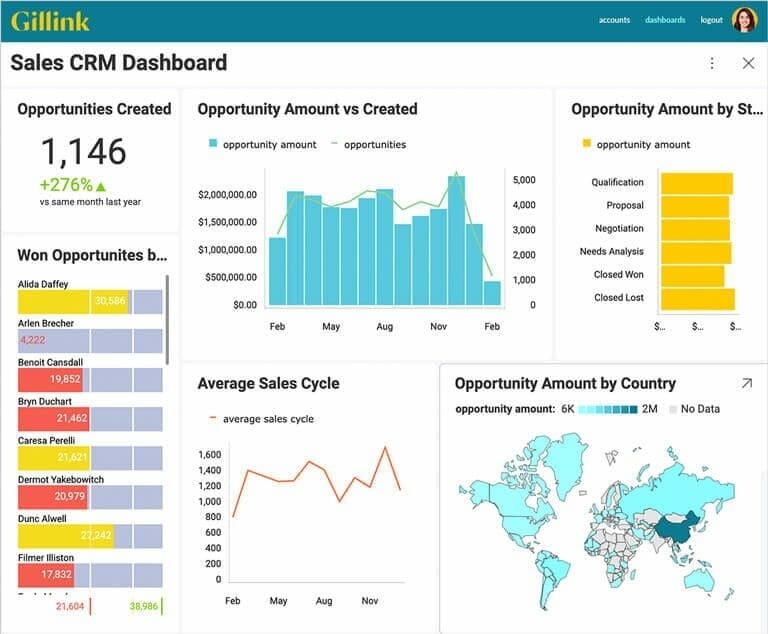
Another valuable use of metrics and reporting is in forecasting future sales and revenue. By analyzing historical data and trends, a CRM can provide forecasts and projections that help businesses understand their expected sales performance. This information can guide business owners in setting realistic targets, making strategic decisions, and allocating resources effectively.
Additionally, metrics and reporting enable businesses to track and analyze deals won and lost. This information helps businesses understand the reasons behind successful deals and identify areas of improvement for lost opportunities. By pinpointing patterns and trends, businesses can adapt their strategies and increase their chances of closing future deals.
Furthermore, a CRM should also provide insights into the outcomes of marketing campaigns. By tracking metrics such as campaign reach, click-through rates, and conversion rates, businesses can evaluate the effectiveness of their marketing efforts. This information helps businesses refine their marketing strategies, optimize their campaigns, and allocate their resources more efficiently.
Metrics and reporting in a CRM for small businesses are essential for making informed, data-driven decisions. By providing insights into the sales funnel, forecasting future sales, analyzing deals won and lost, and evaluating marketing outcomes, a CRM empowers businesses to optimize their processes and drive their success.
Conclusion
In conclusion, choosing the right CRM software is crucial for small business owners. They should carefully consider key factors such as integration with popular cloud products like Google Apps and Dropbox. This ensures that the CRM can address future needs and scale as the business grows.
Additionally, essential features like ease of use and user adoption are important. The CRM should be intuitive and easy to navigate, making it simple for the team to adopt and fully utilize its capabilities. The user experience plays a critical role in the success of implementing a CRM.
To assist small businesses in effectively utilizing the CRM, a 45-90-180-day plan template can be implemented. This template guides businesses on how to gradually integrate CRM into their processes and workflows. It provides a structured approach to utilizing the CRM to its fullest potential.
Overall, small business owners should evaluate their specific needs and goals when choosing CRM software. By considering factors such as integration, essential features, and a comprehensive implementation plan, they can make an informed decision that will optimize their customer relationships and drive growth.





